#legal reform
Text
133 notes
·
View notes
Text
California residents! Please be aware and spread the word!
#prop 47 california#prop 47 explained#california theft#smash and grab#california politics#justice reform now.#criminal justice reform#california law#crime prevention#community safety#legal reform#public safety#justice system#crime policy#law and order#policy reform.
6 notes
·
View notes
Text
AN OPEN LETTER to THE U.S. HOUSE OF REPRESENTATIVES
Co-sponsor The Judicial Ethics Enforcement Act of 2024!
59 so far! Help us get to 100 signers!
A group of House Democrats, led by Reps. Melanie Stansbury, Ilhan Omar and Jamie Raskin, have introduced legislation that would strengthen oversight of the Supreme Court. I’m writing in support of it.
The Judicial Ethics Enforcement Act of 2024 would authorize the creation of an office of the inspector general to investigate allegations of misconduct in the judicial branch. The inspector general would also investigate alleged violations of the Supreme Court code of ethics, issued in November; conduct and supervise audits; and recommend changes in laws or regulations governing the judiciary. The inspector general would be required to inform the attorney general when they believe there has been a violation of federal criminal law.
Congress must pass this bill. Confidence in the Supreme Court is at an all-time low, and there’s good reason for that. Several of its justices are deeply compromised and everyone can see it.
Please co-sponsor The Judicial Ethics Enforcement Act of 2024 right away, so the provisions in it can begin to restore Americans’ faith in our highest court. Thanks.
▶ Created on April 19 by Jess Craven
📱 Text SIGN PWCSGV to 50409
🤯 Liked it? Text FOLLOW JESSCRAVEN101 to 50409
#JESSCRAVEN101#PWCSGV#resistbot#Supreme Court Reform#Judicial Ethics#Ethics Enforcement#Supreme Court Oversight#Inspector General#Misconduct Investigation#House Democrats#Legislation#Judiciary Oversight#Government Accountability#Transparency#Code Of Ethics#Legal Reform#Congressional Action#Federal Law#Judicial Branch#Legislative Process#Accountability#Justice System#Government Oversight#Ethical Standards#Supreme Court Misconduct#Legal Integrity#Federal Oversight#Legislative Proposal#Legal Ethics#Oversight Committee
3 notes
·
View notes
Text
If You Could Rewrite One Law, What Would It Be? Join the Debate Now!
If you had the power to change one law, what would it be and why?
If You Could Rewrite One Law, What Would It Be? Join the Debate Now!
hm so it’s very hard i think
In a thought-provoking discussion gaining traction across social media and beyond, individuals from all walks of life are pondering the question: If you had the power to change one law, what would it be and why?
From legal experts…
View On WordPress
#dailyprompt#dailyprompt-1846#Environmental Protection#Government Accountability#Immigration Reform#Legal Reform#Political Ethics.#Social Justice
0 notes
Text
Navigating the Stormy Waters of Human Rights and Information Age
Ah, the age of information, where data flows like water and rumors spread like wildfire. In this digital utopia (or dystopia, depending on your last Google search), laws against hate speech, disinformation, and misinformation have become as essential as antivirus software. But what happens when a country’s constitution is as silent on fundamental human rights as a mime at a protest? Enter the…
youtube
View On WordPress
#2023#Australian Constitution#Digital Age#disinformation#hate-speech#Human Rights#Indian Constitution#Information Overload#Legal Reform#misinformation#Section 25#UN Conventions#Youtube
1 note
·
View note
Text
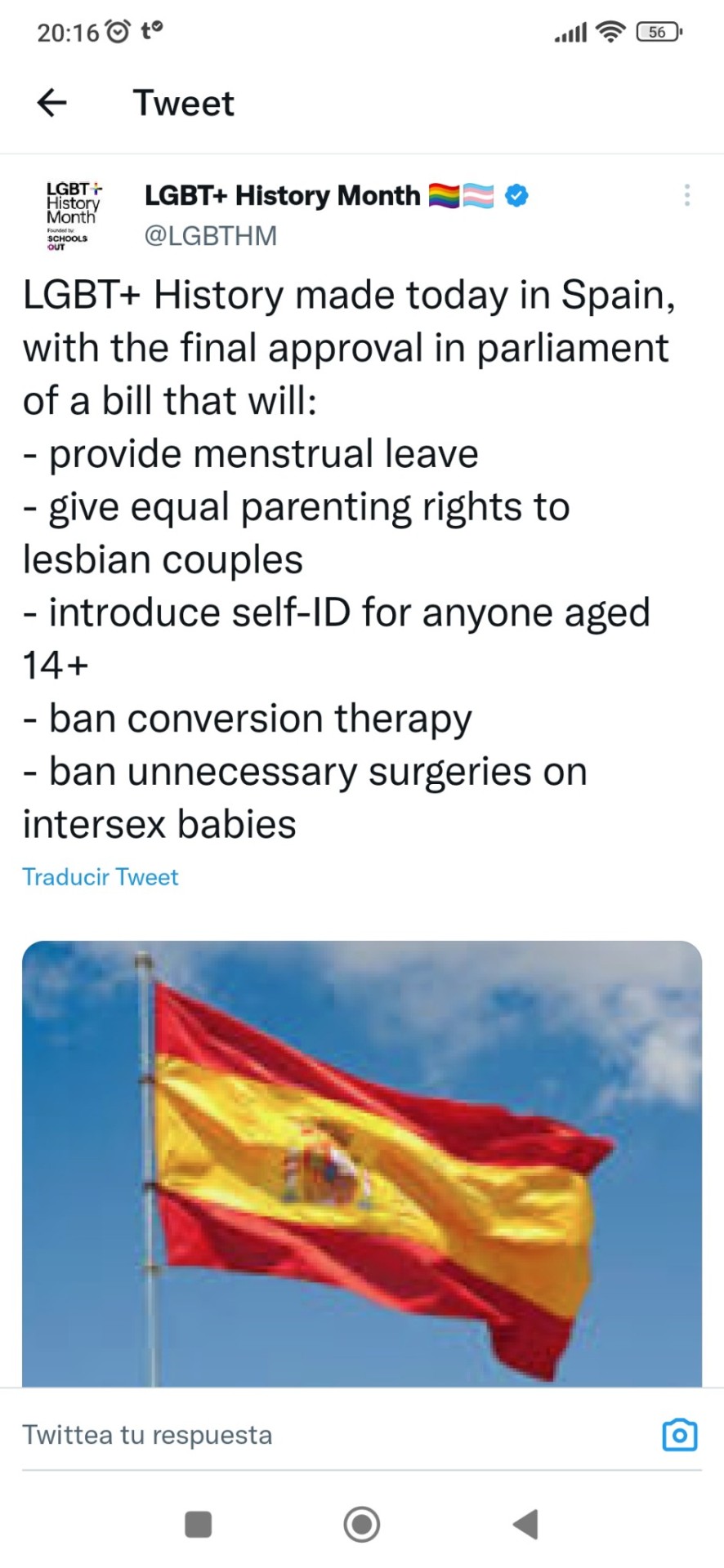
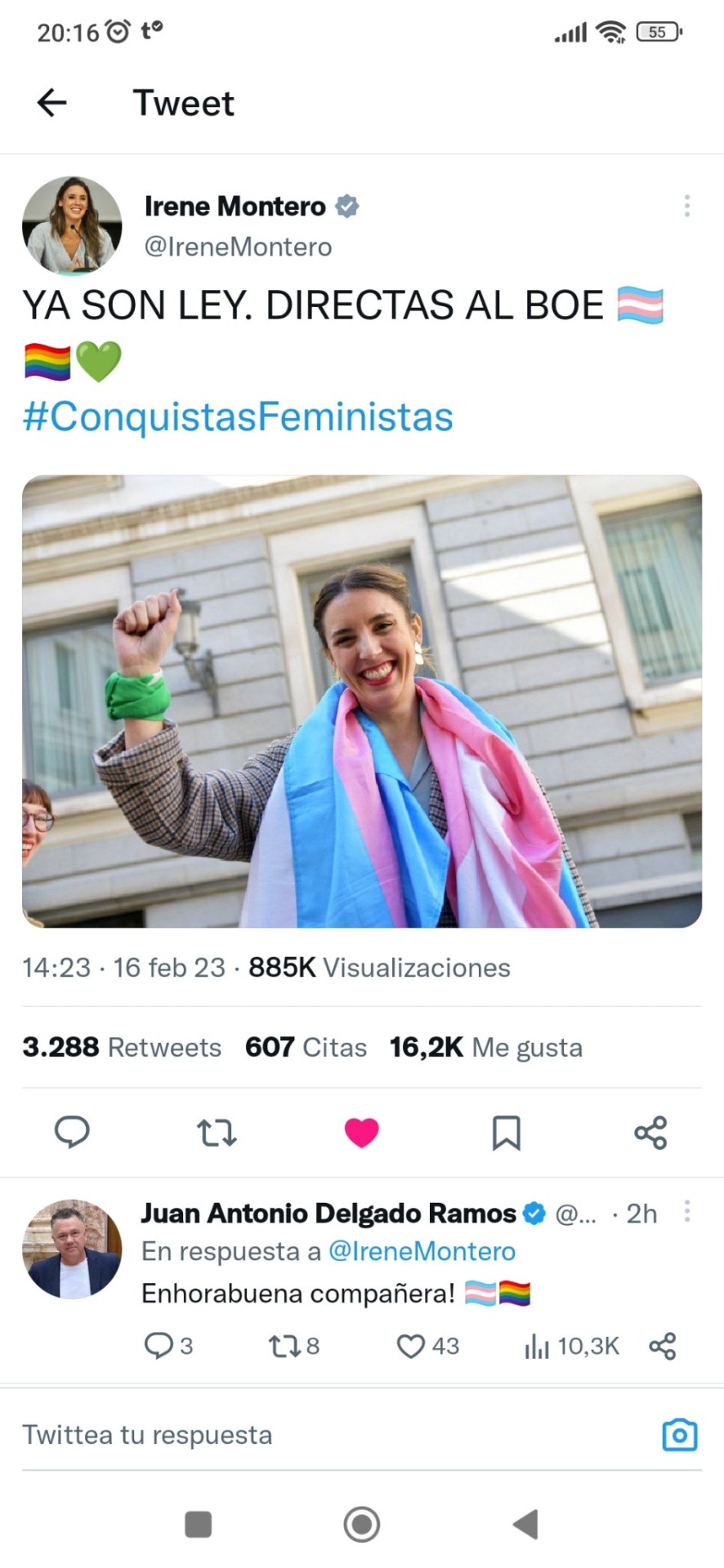
some good news!! the spanish state's ministry of equality has finally passed one of the most progressive trans laws on the planet, shielded free and universal access to abortion and banned conversion therapy and genital surgery for intersex babies, among a lot of other feminist policies. the minister of equality irene montero gave a speech thanking spain's lgtb and trans associations for helping her draft these legislations. couldn't be more proud!!
#spain#trans#ill always prioritize queer&trans revolution over reformism but man. man these are good news#these are gonna make people's life so much more comfortable#i was lucky enough to live in andalucia where we have THEE most advanced regional legislation on trans rights#so i didnt have to fight too many people to access hrt and to change my name on legal docs#but other ppl on the spanish state have been suffering so fucking much#and yeah this law doesnt cover non binary people or migrants but the door is fucking open. its a step forward#and after this terrible terrible week#after the antitrans antisemite game & brianna's murder and so many rampant transphobia#it feels nice to get a win#to have someone in power be so unwaveringly supportive#the queer community in the spanish state is NEVER gonna forget this. never#anyways!!!#felicidades gente trans española!!!! nos vemos en el registro civil dkkskdkkdkxkdk#mine
19K notes
·
View notes
Text
WMST 1101 Study Guide 2.3

Prison Industrial Complex and Abuse
Main takeaways: System of oppression take forms instead of being eradicated
Rehabilitation issues in prison due to disconnection of society.
If the intent is to punish in prison then they're completing their goal, but if it’s to create a better society there are issues along this line.
Statistics regarding incarceration rates between white men vs. black men. Specific intersections are impacted in unique ways/ being a man is not an advantage in the prison system it’s actually a disadvantage.
Mass incarceration and policing within all genders/ identities.
Transgender Individuals: Nearly one in six transgender Americans- and one in two black transgender people have been to prison.
“Violence against TGNC people tends to be worse in places that are separated by sex such as county jails, immigration facilities and prisons. In the United States, transgender incarcerated people are still usually housed according to the sex assigned at birth, instead of by gender identity—one’s inner sense of being male, female or something else.” Transgender Incarcerated People In Crisis
“The transgender prison crisis is part of a larger pattern of violence and discrimination in U.S. society that disproportionately affects people of color, poor people and transgender and gender nonconforming (TGNC) people.
“Over-policing and profiling of low-income people and of trans and gender-nonconforming people intersect,” as the Sylvia Rivera Law Project (SRLP) describes it, “producing a far higher risk than average of imprisonment, police harassment and violence for low-income trans people.” Transgender Incarcerated People In Crisis
Women: At the national level, including both state and federal imprisonment, 47 out of every 100,000 women were in prison in 2021.
Over the past 20 years the war on drugs has caused a significant rise in the number of women incarcerated and their access to adequate drug treatment. Many women in prison have experienced physical or sexual trauma at the hands of men.
Access to feminine products is an issue within women in incarceration.
Discrimination issues between white women vs. black women.
Men: Men are over 8 times more likely than women to be incarcerated in prison at least once during their lifetime.
Male prisoners, who made up 93% of the total prison population at year-end 2018, declined by almost 23,500 (down 1.7%) from year-end 2017
Discrimination issues between white men vs. black men.
Disabled Individuals: Overall, an estimated 66 percent of incarcerated people were disabled.
While behind bars, people with disabilities are often deprived of necessary medical care, as well as needed support, services, and accommodations.
Many inmates with disabilities are held in solitary confinement—reportedly, in many cases, for their own protection, due to a lack of appropriate alternative accommodations.
Federal and state jails and prisons are now home to three times as many people with mental health conditions as state mental hospitals.
1 note
·
View note
Link
Although child marriage remains a largely unseen problem in the United States, very significant progress has been made in the past two decades. The organization Unchained At Last’s landmark 2018 study found that an estimated 300,000 children were married in the United States between 2000 and 2018. That’s a grave statistic, but the situation is improving.
The number of child marriages in the US decreased almost every single year between 2000 and 2018, and over that 18-year period, decreased 30 fold. In 2000, there were 76,396 children married in the US (as documented based on state marriage records).
In 2018, the number of children married was only 2,493. This is 1/30th of the rate just 18 years prior.
In addition, in the four years since Unchained At Last’s initial, groundbreaking 2018 study, seven states and two US territories have banned child marriage completely, in part due to the organization’s determined advocacy. Child marriage is now illegal in the states of Delaware, New Jersey, Pennsylvania, Minnesota, Rhode Island, New York, and Massachusetts, as well as American Samoa and the U.S. Virgin Islands.
Unchained at Last will not stop working until child marriage is illegal in the entire US, and no more children are subjected to this human rights abuse and its devastating, lifelong repercussions. -via Unchained At Last, April 2020, updated 2022. Text of post by reasonsforhope.
#united states#us politics#child marriage#child abuse#cw child abuse#cw rape#delaware#new jersey#pennsylvania#minnesota#rhode island#new york#massachusetts#american samoa#us virgin islands#cw csa#good news#hope#legal advocacy#legal reform#great and detailed data at the source article#but also massive content warnings
9 notes
·
View notes
Text
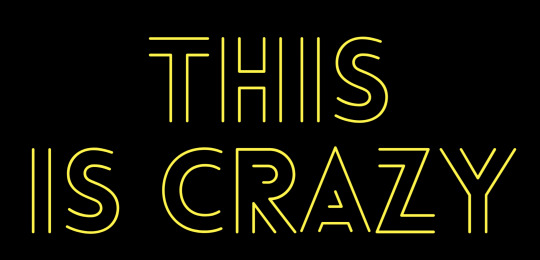
the fix is in!!
#Supreme Court corruption#judicial integrity#legal ethics#accountability#justice system reform#transparency#judicial independence#public trust#legal oversight#ethical standards#judicial misconduct#Supreme Court accountability#judicial power#political thuggery#institutional limits#checks and balances#public pressure#media coverage#judicial reform#democratic principles#constitutional interpretation#judicial impartiality#judicial appointments#separation of powers#government accountability#supreme court ruling#presidential immunity case#Trump legal arguments#congressional impeachment power#criminal charges
141 notes
·
View notes
Text

#happy “reformation day”#martin luther#for legal reasons this is a joke#catholic#file under caroline
327 notes
·
View notes
Text
Expanding on the Obito-is-smart-actually-he's-just-stupid-around-Kakashi AU from here, because it haunts me and I have many thoughts about it. (Note: while most of that can be interpreted as headcanon, and is an explanation of canon events, this post goes into an actual AU version, where canon events aren't followed, because I am gay and sad and cannot take it anymore.)
Normal Obito has an Actual Plan of things he wants to do when he becomes Hokage, including making sure no one clan can be discriminated against in law, building trade relations with other shinobi nations to create actual lasting alliances not built on war (like Kakashi post-canon lol), and actually doing something about the Hyuuga hierarchy stuff, with the help of Hiashi and Hizashi, who he's already created a sort-of-alliance with.
Obito-around-Kakashi is completely unable to articulate this, and instead ends up blurting out things like "fancy hat" and "people will like me," and looking like an indecisive fool who doesn't know what he's doing. Everyone who's interacted with Obito outside of Kakashi believes he can do it, and would do a good job. Unfortunately, Obito spends A Lot of time around Kakashi, including interacting with Most People, so the number who believe he'd make a good Hokage is... distressingly small.
One would think that, given he was able to function and activate a two-tomoe sharingan when Kakashi wasn't looking, he would be able to dodge the boulder fine while Kakashi was knocked out. Unfortunately, he'd just grabbed Kakashi to throw him out of the way, and without Protecting Kakashi being a direct motivator, holding Kakashi in his arms, even just to throw him out of the way, is enough to make Obito's brain stall completely for long enough to get canon'd.
Rin survives becoming a jinchuuriki because Obito trips and crashes wildly into the clearing when he sees Kakashi, and incidentally he ends up crashing into Rin just before she can jump in front of chidori. Unfortunately, Kakashi sees Obito and gets distracted long enough for an enemy to land a blow, and Obito, intelligence fully impaired by proximity to Kakashi, thinks Kakashi is dead. Mangekyo-activation and nigh-instantaneous death of every enemy shinobi in the vicinity ensues. And then Rin heals Kakashi. Because he's Not Dead.
The combination of passed-out Kakashi and Must-Protect-Precious-People allows Obito to tell Rin that Kushina's a jinchuuriki too (he got suspicious bc of the floating hair, and Kushina humored him when he asked), and her and Minato should be able to do something about the seal of the Sanbi. Needless to say, she's rather happy to stay alive and not have to horrifically traumatize one of her precious people.
#Kakashi to Obito: you're stupid but I love you.#Obito internally: I'm so in love with you and also I'm reforming the government and plan to reshape our society so that what happened#to your father can't happen again#and so that five-year-olds can't be made legal adults and get horrifically traumatized by the frontlines like you were#I would burn the world for you but you wouldn't like that so I'll just reform it instead#Obito externally: neat.#nurt#proximity to kakashi au#kakaobi#kakashi#naruto#obikaka#kkob#obkk#obito#hatake kakashi#kakashi x obito#uchiha obito#tobito
381 notes
·
View notes
Text
I think when a lot of queer people who aspire to marriage, and remember (rightly) fighting for the right to marriage, see queer people who don't want marriage, talking about not entering or even reforming or abolishing marriage, there's an assumption I can't fault anyone for having — because it's an assumption borne of trauma — that queers who aren't big on marriage are inadvertently or purposefully going to either foolishly deprive themselves of rights, or dangerously deprive everyone of the rights associated with marriage. But that's markedly untrue. We only want rights to stop being locked behind marriages. We want an end to discrimination against the unmarried.
We want a multitude of rights for polyamorous relationships. We want ways to fully recognize and extend rights to non-romantic and/or non-sexual unions, including but not limited to QPRs, in a setting distinct from the one that (modern) history has spent so long conflating with romance and sex in a way that makes many of us so deeply uncomfortable. And many of us are also disabled queers who are furious about marriage stripping the disabled of all benefits.
We want options to co-parent, and retain legal rights to see children, that extends to more than two people, and by necessity, to non-biological parents (which, by the way, hasn't always automatically followed from same-gender marriage equality even in places where said equality nominally exists. Our struggles are not as different as you think). We would like for (found or biological) family members and siblings to co-habitate as equal members of a household, perhaps even with pooled finances or engaging in aforementioned co-parenting, without anyone trying to fit the dynamic into a "marriage-shaped box" and assume it's incestuous. We want options to leave either marriages, or alternative agreements, that are less onerous than divorce proceedings have historically been.
I can't speak for every person who does not want to marry, but on average, spurning marriage is not a choice we make lightly. We are deeply, deeply aware of the benefits that only marriage can currently provide. And we do not take that information lightly. We demand better.
Now, talking about the benefits of marriage in respective countries' current legal frameworks, so that all people can make choices from an informed place, is all well and good — but is not an appropriate response to someone saying they are uncomfortable with marriage. There are people for whom entering a marriage, with all its associated norms, expectations, and baggage, would feel like a betrayal of one's self and authenticity that would shake them to their core — and every day, I struggle to unpack if I'm one of them or not. If I want to marry for tax benefits, or not. If that's worth the risk of losing disability benefits, in the (very plausible) possibility that I have to apply for them later in life. If that's worth the emotional burden of having to explain over and over, to both well-meaning and deeply conservative family members, that this relationship is not one of romance or sex. (Because, god, trying just to explain aromanticism or asexuality in a world that broadly thinks they're "fake" is emotional labor enough.)
Marriage is a fundamental alteration to who I am, to what rights an ableist government grants me, and to how I am perceived. I don't criticize the institution just because I enjoy a "free spirit" aesthetic or think the wedding industry is annoying, or whatever.
#to claim “gay marriage is assimilationist” is of course bullshit and ahistorical#but to claim “gay marriage is the last marriage reform we need” is even more bullshit. in the vein of “fuck you; i got mine”#amatonormativity#marriage#there's also something idk if i'm that qualified to articulate as a culturally christian person (even if nonreligious)#but concepts of marriage (or lack thereof) vary across the globe and across cultures#yet legal marriage - which crosses borders via presence in immigration law (in addition to obvious colonialism)#can impose extremely eurocentric norms onto countless people#which is a strong argument for separating spiritual/religious marriage from legal benefits tbh#they're *supposedly* separated in the US but you know obergerfell wouldn't have taken until 2015 if that was fully true
83 notes
·
View notes
Note
Why was queens pardoning prisoners seen as good? Like murders and sexual assaulter ect? Wouldn’t the public be against that?
This is an area where I think Foucault was actually right:
"...The public execution is to be understood not only as a judicial, but also as a political ritual. It belongs, even in minor cases, to the ceremonies by which power is manifested....
The public execution, then, has a juridico-political function. It is a ceremonial by which a momentarily injured sovereignty is reconstituted. It restores that sovereignty by manifesting it at its most spectacular. The public execution, however hasty and everyday, belongs to a whole series of great rituals in which power is eclipsed and restored (coronation, entry of the king into a conquered city, the submission of rebellious subjects); over and above the crime that has placed the sovereign in contempt, it deploys before all eyes an invincible force. Its aim is not so much to re-establish a balance as to bring into play, as its extreme point, the dissymmetry between the subject who has dared to violate the law and the all-powerful sovereign who displays his strength. Although redress of the private injury occasioned by the offence must be proportionate, although the sentence must be equitable, the punishment is carried out in such a way as to give a spectacle not of measure, but of imbalance and excess; in this liturgy of punishment, there must be an emphatic affirmation of power and of its intrinsic superiority. And this superiority is not simply that of right, but that of the physical strength of the sovereign beating down upon the body of his adversary and mastering it by breaking the law, the offender has touched the very person of the prince; and it is the prince - or at least those to whom he has delegated his force - who seizes upon the body of the condemned man and displays it marked, beaten, broken. The ceremony of punishment, then, is an exercise of 'terror'...
The sovereign power that enjoined him to kill, and which through him did kill, was not present in him; it was not identified with his own ruthlessness. And it never appeared with more spectacular effect than when it interrupted the executioner's gesture with a letter of pardon...The sovereign was present at the execution not only as the power exacting the vengeance of the law, but as the power that could suspend both law and vengeance. He alone must remain master, he alone could wash away the offences committed on his person; although it is true that he delegated to the courts the task of exercising his power to dispense justice, he had not transfered it; he retained it in its entirety and he could suspend the sentence or increase it at will." (emphasis mine)
Michel Foucault, Discipline and Punish, ch. 2
Unlike a modern conception of criminal justice, which is premised as an objective, rational, truth-seeking process in which precise identification of the right suspect and their level of guilt and the appropriate nature of their punishment, criminal justice systems in premodern Europe (although not necessarily limited to the same) were meant to emphasize the terrifying arbitrariness of royal power. With rituals put in place in order to ensure guilt through public (often coerced) confessions, the point wasn't whether the sheriff and the judge had "got the right man" or whether "the punishment fits the crime," but that the king could either enact public displays of bodily obliteration or public displays of mercy at their sole discretion.
In a sense, the pardoning of the guilty was a necessary justification for the deliberately disproportionate brutality of a pre-carceral system of punishment. This promoted the logic of submission to the guilty and innocent alike: if the king could sentence you to the ultimate physical dehumanization whether or not you were guilty, the only hope was either the mountain and forest refuge of the outlaw or the hope of a pardon as a quasi-divine act of unearned grace.
58 notes
·
View notes
Text
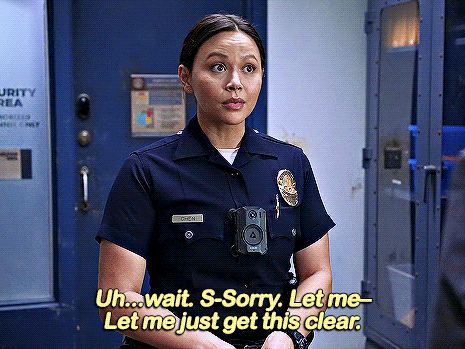
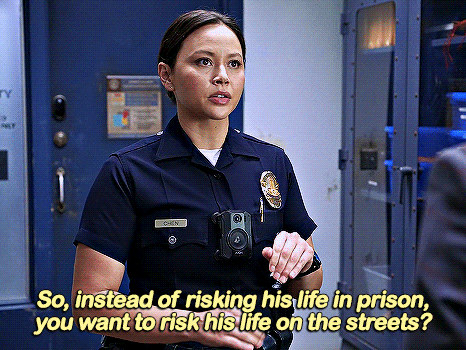





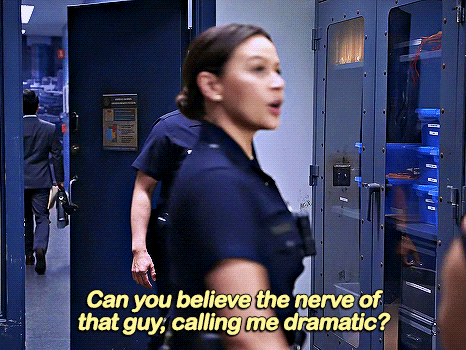
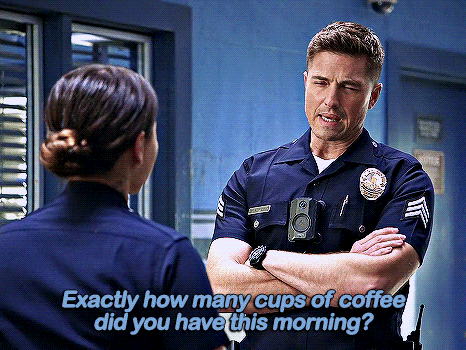

Let's continue with the positivity. Charge Tyler as a minor. He committed a crime with a gun. It was unloaded. Look, I'm not saying that there shouldn't be consequences, but he's 16. He's not old enough to drink, vote, join the military, and you want to lock him up with a bunch of grown men? Look, studies show that– No, please, don't quote studies at me. And definitely don't start lecturing me about the science of still-developing brains in men under 21. ... Look, if Tyler becomes a CI against his crew, I can definitely give him a break.
#30DAYSOFLUCY for PRIDE 2023
THE ROOKIE (2018) – 4x11 "End Game"
Melissa O'Neil as Lucy Chen
#the rookie#therookieedit#chenfordedit#melissa o'neil#30DAYSOFLUCY#tim bradford#chris sanford#the rookie s4#the rookie 411#id in alt#nothing like two men double-teaming a woman#to convince her that she's being dramatic#by strongly advocating for police reform#so that this kid can have a second chance at life#is over-caffeinated the legal term for the 'are you on your period?' question at the workplace#chenford#lucy chen#mine.gif#lucylessons
233 notes
·
View notes
Text
The Republican Party is at war with the American people.
#republican assholes#three strikes#criminal justice#courts target the poor#justice system targets minorities#court reform#legal system reform#Louisiana
23 notes
·
View notes